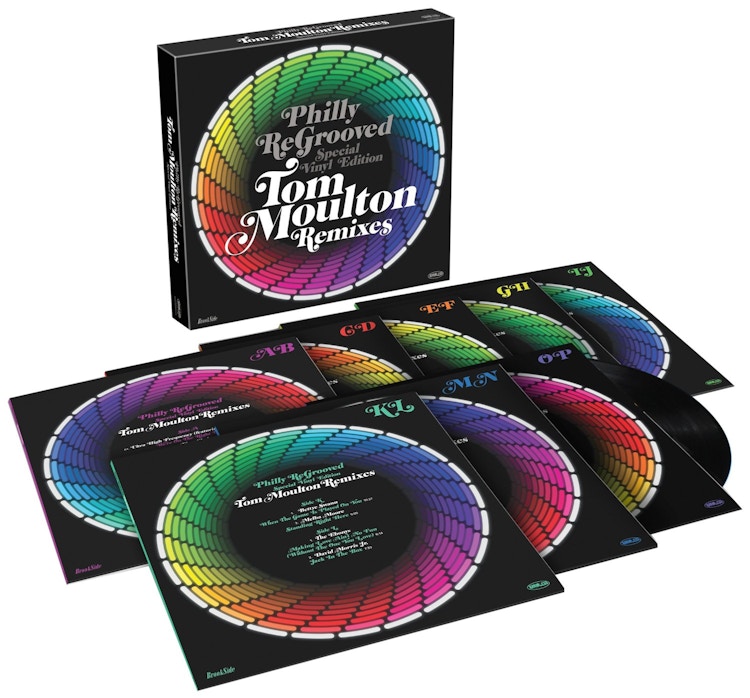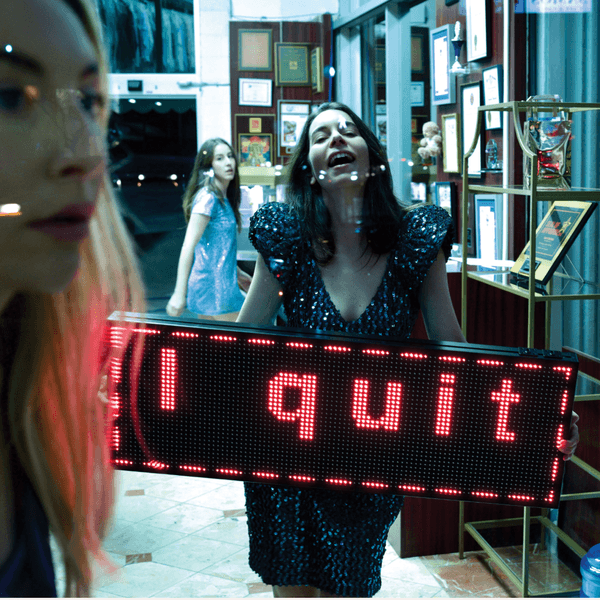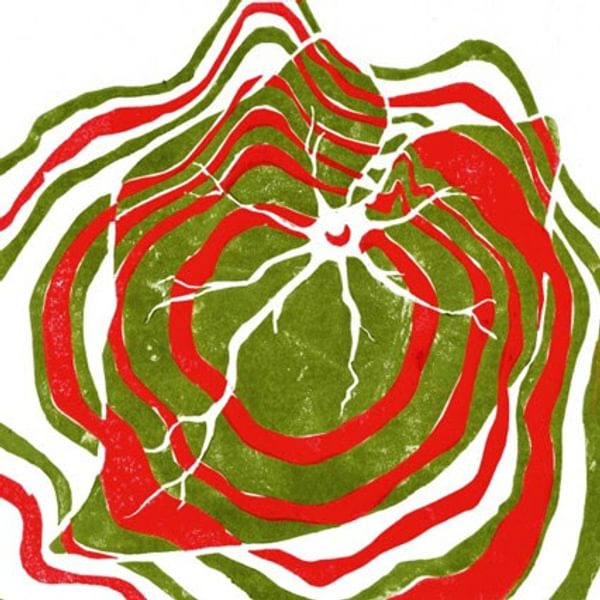"Philly ReGrooved"

Disco, a dirty word for so long, is currently undergoing a period of renaissance, especially for the big producers from the golden period. Nile Rogers & Giorgio Moroder are recording again and enjoying profiles higher than ever; a lost soundtrack to 70’s gay porn films by Patrick Cowley was recently uncovered and released to coincide with what would have been his 63rd birthday, and now we have this impressive 40 track, 8 vinyl collection from the inventor of the extended remix and the continuous play ‘mixtape’, Tom Moulton.
This collection of mixes from the Philly Groove label crosses the line between Northern Soul & Disco, the macho clubs of the North of England to the predominantly black and gay dance floors of the States. Instead of what is now known as a typical remix, snippet of vocal here, dash of percussion here, Moulton respected the originals and treated them without ego, by extended remix, it was literally that, just a longer version of original’s the best bits with an additional pinch of elegance.
The majority of the material on Philly Re-Grooved contains big choruses and soaring strings: Melba Moore’s “Standing Right There”, blatantly stolen by Stanley & Wiggs for St Etienne’s “Hug My Soul”, you get soppy romanticism with “Could it Be I’m Falling In Love” by The Spinners and “I’m Doing Fine Now” from New York, the swaggering soul of Loose Change’s ‘Straight From The Heart, and, best of all, the seductively uplifting disco beats of the eleven minute epic ‘Look Me Up’ by Blue Magic.
Moulton’s skills lie in repetition. Whilst clubbing in the early 70s he noticed the frustration of a crowd desperate to let them music take them to a higher level, only to be prevented by the limit of three/four minute songs. Moulton took it upon himself to take these pop tracks and extend them to eight, nine minute examples of musical ecstasy, taking the instrumental break and transforming it into an elongated intro, or taking drum breaks and extending them to make trippy mid-sections for to floor to lose it to. This being the 70s, the equipment we have now to do this that such as pro-tools, Cubase etc wasn’t available, instead he’d take the master tapes, and cut out the bits that were extendable, copy these parts of the tape and insert them back into the track, thus turning pop into epics and giving the DJ more time work the crowd.
This visionary approach led Moulton to create the very first DJ tools, massively important in the transformation process of nightclubs and for DJ culture as a whole. As you delve into this collection, his importance becomes more than apparent; the majority of these songs were released in the late sixties where anything over three minutes was unacceptable, but Moulton had the foresight to see that short tracks and gaps in between just simply wouldn’t do and went on to do something about it, leaving behind a legacy of classy mixes. Without him, we’d be dancing to a very different beat.
Get the Best Fit take on the week in music direct to your inbox every Friday

Loyle Carner
hopefully !

Yaya Bey
do it afraid

Haim
I quit





